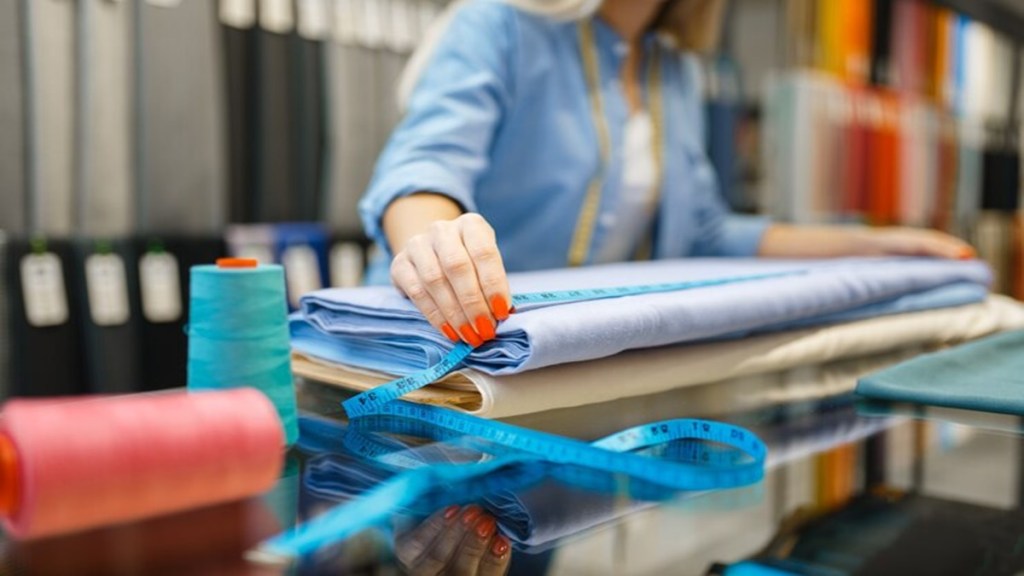The landmark India-UK Free Trade Agreement (FTA) will significantly enhance the export competitiveness of India’s labour-intensive textile and apparel sectors, unlocking additional export opportunities worth $1 billion to the UK, according to industry experts.
The FTA could reduce duties on textiles and garments exported to the UK by 8–12%. At present, made-ups like home textiles face an 8% import duty in the UK while woven and knitted garments including baby garments, T-shirts, women apparels as well as processed fabrics attract a 12% duty.
The new tariff structure has placed India on par with Bangladesh, which hitherto enjoyed zero-duty access due to its Least Developed Country (LDC) status. The FTA has also given India’s apparel exporters a 12% edge over China’s tariffs.
According to industry insiders, India’s exports to the UK in 2024 included $655 million worth of knitted apparel such as T-shirts, jogging shorts, and leggings, while woven apparel like shirts, trousers, and dresses accounted for $754 million.
The UK imports $18–20 billion worth of apparel annually. China accounts for 21% of the UK’s total apparel imports, followed by Bangladesh at 19%.
“Historically, India has held only a 5–6% market share in UK’s textile imports,” said Prabhu Dhamodharan, convenor of the Coimbatore-based Indian Texpreneurs Federation (ITF). He added that India can be more aggressive in bagging more orders as the FTA has leveled the playing field with its key competitor, Bangladesh.
A Sakthivel, Vice Chairman of the Apparel Export Promotion Council said that he expects exports to the UK to double in two years from the current level of $1.5 billion. Sakthivel, who also runs Tiruppur-based Poppys Knitwear, said, “Unlike Vietnam, Cambodia, Sri Lanka, or Bangladesh, we have inherent strength in raw material. We don’t have to depend on imports for cotton or yarn, and that’s a big advantage.”
S Ganapathi, Vice Chairman and Managing Director of Gokaldas Exports, said that this is a $1 billion incremental export opportunity for Indian apparel in the UK market but the full benefits of the deal may only materialise by FY27.
“Such agreements are vital for integrating India more deeply into resilient global value chains, strengthening our position as a trusted manufacturing and export partner on the world stage,” added Gautam Hari Singhania, Chairman, Raymond Group. For readymade garments, Sudhir Sekhri, Chairman of Apparel Export Promotion Council said that the exports are likely to double in the next three years.
The India-UK FTA comes at a time when the high tariffs imposed by the US on China has underlined the need to diversify the supply chains away from the neighbouring country.
“Post the latest US tariff announcement, there was a strong need to diversify textile exports,” said Santosh Katariya, President of the Clothing Manufacturers Association of India (CMAI). He added that the UK is one of the most promising and growing markets for Indian textile and apparel products.
ITF’s Dhamodharan said that overseas buyer sentiment is also increasingly favouring India. “Sentimentally and directionally, everything is positive,” he said, adding that exporters must now invest boldly and build capacity to seize the opportunity. Ronak Chiripal, promoter of Chiripal Group added that this is also likely to enable domestic industry to innovate for UK consumers, tailoring new product lines to their evolving tastes.
Experts also said that Tamil Nadu is likely to be the biggest beneficiary of the FTA. The state accounts for the highest share of the country’s textile exports, contributing 27% of India’s total textile exports of $36.61 billion in FY25.
The shares of the major exporters also responded positively to the news with some of the like Gokaldas Exports and Welspun Living rising over 11% on Wednesday.
(With inputs from Mukesh Jagota and Krishna Barot)


